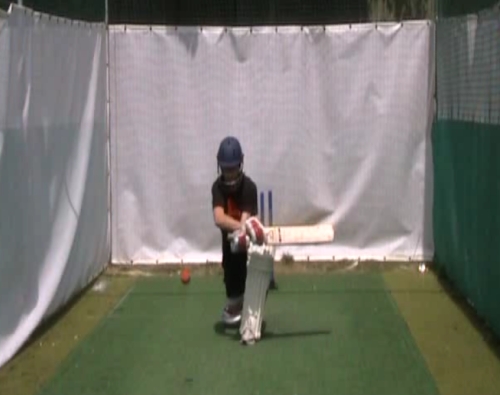Why Paying for Players is Costing Your Cricket Club More than Money
Today’s article is a guest post from Darren Talbot; Professional coach, Managing Director of Darren Talbot Cricket Coaching and founder committee member of the Surrey ECB Coaches Association.
The hunt for success is making the sight of professionals a common sight on club cricket fields.
You pay out thousands for players to play for your amateur club. They promise runs, wickets and to bring you the league title.
Cricket Show 117: Solving the Problems of Fast Bowling
| Attachment | Size |
|---|---|
| PitchVision Academy - PitchVision Academy Cricket Show 117.mp3 | 21.35 MB |

Paddy Sadler is a fast bowler for Watsonian CC, Cambridge MCCU and Scotland Under-19. This week’s show is dominated by an interview with Paddy.
He tells us about some of the problems facing ambitious young fast bowlers playing club cricket and going to University.
We discuss how to get into rhythm; balancing work and cricket; what practice is best and how to keep your focus if you are bowling badly or getting hit.
How to Play the Reverse Sweep
 With the constant rise in run rates, there has never been more demand for creative shots.
With the constant rise in run rates, there has never been more demand for creative shots.
The reverse sweep is a perfect example: played when you need to take a risk to score quick runs by putting the ball into a gap.
In this exclusive video PitchVision Academy coach Ian Pont reveals the secrets of how to play and practice the reverse sweep.
Here’s a Video Timeline of How to Warm-Up before Cricket
We all accept the importance of a warm up to prepare your body and mind for the game if you play any serious level of cricket from school upwards.
We looked at the hour or so that our case study club, Watsonian CC, took to warm up in a league match in Edinburgh.
The Chris Tremlett Guide to Going from Mouse to Lion
Fast bowlers are supposed to snarl and prowl. So what do you do if you have the physical attributes but not the mean, glaring attitude?
English fast bowler Chris Tremlett knows it’s not enough to be able to bowl with pace and accuracy. Fast bowling is also about putting the batsman in two minds.
You need to make the batsman think, “Does he really want to hurt me?”
When he has that doubt in his mind he plays nervously and you get a wicket through poor footwork.
Cricket Show 116: How to Rehab from an Appeal-Related Injury
| Attachment | Size |
|---|---|
| PitchVision Academy - PitchVision Academy Cricket Show 116.mp3 | 22.95 MB |

With Burners out of action this week, PitchVision boss Richard steps in to fill the void. Everyone look busy.
On the show David and Richard discuss the difference between the dressing rooms at the MCG and the average club ground and finally get to the bottom of when to do with a bag on a seat when you want to sit down.
Why Your Club is Driving Players Away
The captain scratched his head as he examined the team sheet. He had 8 names written on it.
“Who can we find to play?” he muttered to himself, scrolling through his phone contacts.
He was already coming up with creative ideas like asking Fred if his brother still fancied a game because he “played a bit in school” and expressed some interest a couple of seasons ago.
Is Your Frame Stopping You from Scoring Runs?
Have you ever arrived at a party late and it’s already jumping?
If you have, you know that it’s difficult to jump right in and start having fun. That’s because everyone at the party have had enough time to get into the food, music, drink and atmosphere.
Imagine that at the party you sit in the corner refusing to speak to anyone because you might say the wrong thing.
Fielding Drills: Front and Back
This drill is part of the PitchVision Academy fielding drills series, for more in this series click here.
Description: The coach hits the ball towards the fielders split into 2 groups. There must be 1 less fielder in the front group.

